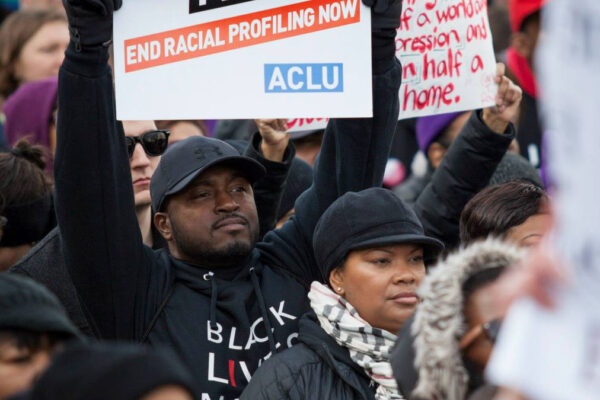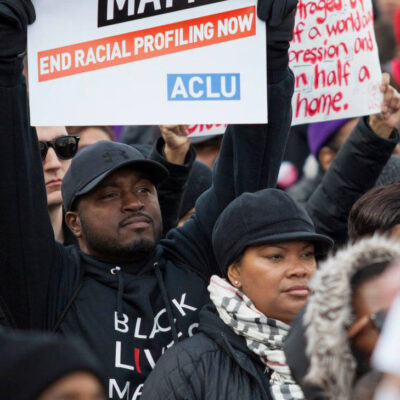Anthony Childs, a 31-year-old Black man, was walking along a sidewalk in Shreveport when a police officer attempted to detain him. Childs ran. The chase ended when the officer fired several rounds, and Childs fatally shot himself.
The offense that led to this tragic and deadly encounter? Childs was allegedly wearing his pants too low.
Since 2007, Shreveport criminalized people for wearing pants below the waist in public with an ordinance that was almost exclusively enforced against Black men. According to data collected by the Shreveport Times, Black men made up 96 percent of the people arrested under the ordinance.
The ordinance turned local law enforcement into literal “fashion police” who used saggy pants as a pretext to target, search, and imprison Black people – with devastating and even deadly consequences.
Childs’ death spurred a long-overdue effort to repeal the ban, and on June 11, the Shreveport City Council finally scrapped this unconstitutional and discriminatory ordinance – thanks to a groundswell of public opposition and the leadership of Councilwoman LeVette Fuller.
This is good news for the people of Shreveport and for everyone who believes in the constitutional principles of fairness, free expression, and due process of law.
As the ACLU of Louisiana explained in a letter to the City Council, this law was blatantly unconstitutional and clearly motivated by racial animus. Louisiana’s Criminal Code already prohibits indecent exposure, but this ordinance went further by targeting Black people with an arbitrary and vague requirement to keep their pants at an unspecified height.
The ordinance also violated the First Amendment guarantee of free expression. As explained by Justice Marshall in Kelley v. Johnson, “the right in one’s personal appearance is inextricably bound up with the historically recognized right of every individual to the possession and control of his own person…. it would be distressing, to say the least, if the government could regulate our personal appearance unconfined by any constitutional strictures whatsoever.”
In other words, the government shouldn’t be in the business of dictating what people wear, or criminalizing people for their personal appearance.
Now that Shreveport has repealed its saggy pants ban, it’s past time for other cities to follow suit. According to Mother Jones, municipalities in Georgia, Mississippi, New Jersey, South Carolina, and other parts of Louisiana still have anti-sagging ordinances on the books.
These laws may be outrageous – but they’re not outliers. From pretrial detention to racial profiling and police brutality, racism is hard-wired into our criminal justice system – causing Black people to be over-policed, arrested, and even killed for merely existing in public spaces.
Anthony Childs shouldn’t have had to die for Shreveport to repeal its unconstitutional ordinance. Now it’s on all of us to honor his memory by keeping up the fight against all forms of racial injustice.
###


